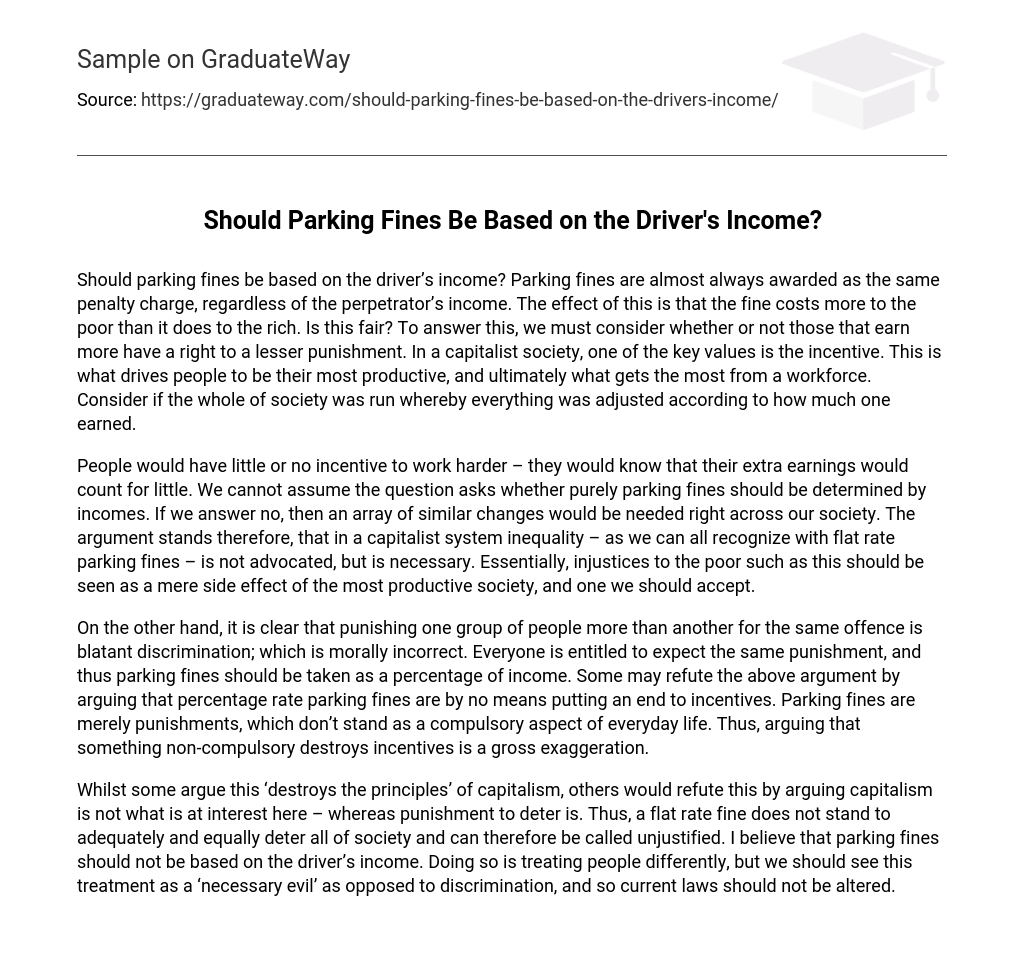Should parking fines be based on the driver’s income? Parking fines are almost always awarded as the same penalty charge, regardless of the perpetrator’s income. The effect of this is that the fine costs more to the poor than it does to the rich. Is this fair? To answer this, we must consider whether or not those that earn more have a right to a lesser punishment. In a capitalist society, one of the key values is the incentive. This is what drives people to be their most productive, and ultimately what gets the most from a workforce. Consider if the whole of society was run whereby everything was adjusted according to how much one earned.
People would have little or no incentive to work harder – they would know that their extra earnings would count for little. We cannot assume the question asks whether purely parking fines should be determined by incomes. If we answer no, then an array of similar changes would be needed right across our society. The argument stands therefore, that in a capitalist system inequality – as we can all recognize with flat rate parking fines – is not advocated, but is necessary. Essentially, injustices to the poor such as this should be seen as a mere side effect of the most productive society, and one we should accept.
On the other hand, it is clear that punishing one group of people more than another for the same offence is blatant discrimination; which is morally incorrect. Everyone is entitled to expect the same punishment, and thus parking fines should be taken as a percentage of income. Some may refute the above argument by arguing that percentage rate parking fines are by no means putting an end to incentives. Parking fines are merely punishments, which don’t stand as a compulsory aspect of everyday life. Thus, arguing that something non-compulsory destroys incentives is a gross exaggeration.
Whilst some argue this ‘destroys the principles’ of capitalism, others would refute this by arguing capitalism is not what is at interest here – whereas punishment to deter is. Thus, a flat rate fine does not stand to adequately and equally deter all of society and can therefore be called unjustified. I believe that parking fines should not be based on the driver’s income. Doing so is treating people differently, but we should see this treatment as a ‘necessary evil’ as opposed to discrimination, and so current laws should not be altered.





